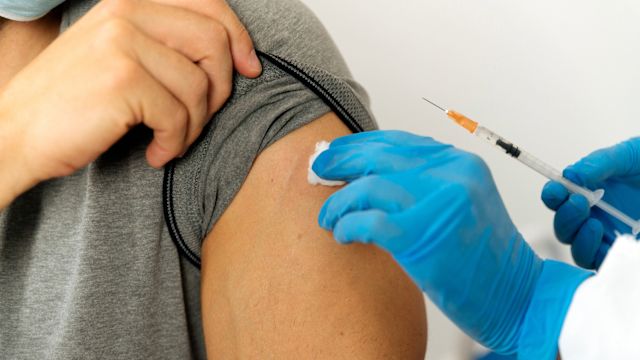By now, you've likely heard a lot about COVID-19 vaccines.
There are currently three different vaccines available in the United States, from three different manufacturers—Pfizer-BioNTech, Moderna, and Johnson & Johnson.
There’s also a new vaccine from the manufacturer Novavax. This vaccine is being reviewed by the U.S. Food & Drug Administration (FDA) and is already being used in many countries around the world.
The Centers for Disease Control and Prevention (CDC) recommends the Pfizer or Moderna vaccine over the Johnson & Johnson, for reasons we’ll describe below.
Booster shots are also recommended—and the CDC states these can be given in a "mix and match" approach. For example, if you received the Pfizer vaccine for the first two doses, you can receive the Moderna vaccine for your booster.
The vaccines that are available and under review work in different ways. Here, we take a closer look at the different mechanisms that the COVID-19 vaccines use to protect you from the virus.
mRNA vaccine
Both the Pfizer and Moderna vaccines are a type of vaccine called “messenger RNA (mRNA) vaccines.”
This is a new form of vaccine, although researchers have been working with them for decades. mRNA vaccines teach the cells in the body to make a protein that triggers an immune response. This immune response produces antibodies—which help protect you if the real COVID-19 virus gets into your body.
Carrier vaccine
The Johnson & Johnson vaccine is a “carrier vaccine,” also called a “virus vector vaccine.”
A carrier vaccine contains a modified virus that cannot cause infections. This harmless virus is called a “vector.” The vector delivers genetic instructions that trigger the production of a specific protein. This protein triggers a response from the immune system, causing it to produce antibodies that protect against COVID-19.
Carrier vaccines may be less effective against COVID-19. The CDC also recommends Pfizer and Moderna vaccines over the Johnson & Johnson vaccine due to the risk of blood clots among recipients of the Johnson & Johnson vaccine.
Protein adjuvant
The COVID-19 vaccine from the manufacturer Novavax uses a mechanism called a protein adjuvant. “Adjuvants” are ingredients used to create an immune response.
The Novavax vaccine contains a protein from the virus that causes COVID-19. This protein cannot cause an infection, but it can stimulate the immune system to create antibodies that protect against an infection.
In clinical trials, protein adjuvants are shown to be highly effective against COVID-19. They may also come with fewer side effects than other types of vaccines.
All the COVID-19 vaccines, regardless of mechanism, are shown to be safe and effective, and are under intense safety monitoring by the CDC.






